- Home
- Ellis, Tim
Lost Children of Bethnal Green (Quigg #9) Page 2
Lost Children of Bethnal Green (Quigg #9) Read online
Page 2
‘I like driving expensive cars.’
‘You’ll drive carefully?’
‘I’m an excellent driver.’
He handed her the keys. ‘I’ll trust you then.’
They walked down to the car park and climbed into his Mercedes.
‘The Ragged Children’s Home,’ he said.
‘I know. The Chief briefed me on the case before you arrived.’
‘He did, did he? Was that before or after you agreed to become my partner?’
‘After.’
‘So, you weren’t swayed by the possibility of investigating missing children?’
‘No. The Chief told me all about you, about your chaotic private life; about what had happened to your previous partners, about how you’re only given the complex cases . . . And then he advised me not to become your partner.’
‘And yet, here you are?’
‘To be truthful, Sir. When I’d decided to move from Kent, I began looking around for somewhere else that could offer me what I wanted – someone mentioned your name.’
‘Someone who didn’t like you?’
‘No. Someone who didn’t like you.’
He raised an eyebrow. ‘I can’t believe there’s someone out there who doesn’t like me.’
‘Believe it. They didn’t want me to leave Kent. So I did my research, and I applied to come here knowing that you needed a new partner. I’d already made up my mind I wanted to work with you.’
‘I see. So, you signed on the dotted line with your eyes wide open?’
‘Yes.’
‘Well, I hope the job meets all your expectations, Rummage.’
‘So do I, Sir.’
They arrived at the Ragged Children’s Home on Old Castle Street at nine-thirty and climbed the concrete steps.
Quigg turned the handle on the old Victorian brass bell and shifted back down one step.
They heard a dull ringing from inside.
It took a handful of minutes for the heavy wooden door to open. When it did, a rather large woman in a tight-fitting black skirt and jacket was standing there. She had braided dark hair, a stern face that had begun to sag around the eyes and jawline, and red lipstick that looked like a gash in her face.
‘Yes?’ she said, standing on the top step like an overseer.
He had to move down another step and crane his neck upwards. The arrangement put visitors at a distinct disadvantage. He held his Warrant Card up towards her. ‘Detective Inspector Quigg and Detective Constable Rummage from Hammersmith Police Station.’
‘And?’
‘We’re here about the missing children.’
‘Missing!’ she said, rolling her eyes upwards and cocking her head back and to the side as if she had a nervous tic. ‘I explained quite clearly that the children were runaways. Would they listen to me?’
‘I guess not.’
‘You guess right, Mr Quinn. Do you know how many children run away from home each year?’
‘No, I’m sorry, Mrs . . .?’
‘Ms Bellab Hickey – I’m the Custodian here.’
‘Well, I don’t have that information to hand, Ms Hickey . . . And it’s, Inspector Quigg.’
‘Well, I do have that information to hand, Mr Quigley. In the region of one-hundred-thousand children run away from home or care each year – that’s one every five minutes. And let me tell you, that these children don’t run away because this is a terrible place to be – not by a long walk down a short plank. They run away because they want to cause trouble for me, for the Board of Governors, for the Children’s Home; for the Local Authority. They’re promiscuous, criminals, or both. They want to go back to the life that Social Services have removed them from, the places they’re familiar with, the people they know. Well, I say, good riddance to them. We offer them the very best of homes here at Ragged, and running away is how they repay us.’
‘Would you mind if we came in, Ms Hickey?’
She screwed up her face so that it looked like a sack of onions. ‘Came in? Here? Why?’
‘So that we can discuss the missing children, look at their rooms, question people. Search for any clues as to where they might have gone, or what might have happened to them. This is a police investigation now.’
‘You think I don’t know these children?’
‘We’re not saying that at all.’
‘Well, what exactly are you saying, Mr Quiller?’
He decided that it wasn’t worth correcting her every time she got his name wrong, and he didn’t know whether she was doing it on purpose, or if she truly couldn’t remember his name was Quigg. ‘What I’m saying is that we have to check everything out. We can’t take yours or anyone else’s word for anything. It’s what the police do, Ms Hickey. Everyone is a suspect until proven otherwise.’
‘Whatever happened to: Innocent until proven guilty?’
‘The principle still holds in a court of law, but first we have to establish the facts and eliminate you from our enquiries.’ He began moving up the steps.
She didn’t move.
‘The sooner you let us in, the sooner we’ll be gone,’ Rummage said to her from behind him.
Bellab Hickey grunted and moved backwards. ‘I don’t suppose I have any choice, do I?’
‘Thank you,’ Quigg said. ‘I’d be grateful if you could provide us with the details of the missing children?’
‘Details?’
‘Names, ages, the date they went missing and photographs if you have them?’
‘Follow me.’ She led them though a myriad of corridors that seemed more like a maze than a home.
‘We should have brought a golden twine,’ Rummage whispered.
‘Ha!’ Hickey said without turning around. ‘A golden twine might have worked for Theseus in the Minotaur’s labyrinth, but it wouldn’t help you here – the children would simply cut it. We operate on the principle that a child should be seen and not heard at Ragged, but they don’t need to be noisy to get up to all kinds of mischief.’
‘I was wondering why there wasn’t any noise,’ Rummage said.
‘Oh no! We don’t countenance noise in the Ragged Children’s Home. As I often say to the children: Work hard in silence; let success be your noise.’
‘But sometimes children should just be children and permitted to play, shouldn’t they?’
‘Idle time is the devil’s play,’ she said, ending the conversation. She opened a door into an office. ‘Here we are. This is my clerical lady – Daisy Ostby. Daisy’s been here since the time of the Great Fire in 1666, haven’t you, Daisy?’
‘Yes, Ms Hickey.’
Quigg and Rummage smiled and nodded at the wrinkled, grey-haired old lady sitting at a wooden desk in front of a vintage black Underwood typewriter with glass keys.
Her return smile was more like a witch’s toothless grin, and she looked as though she had cataracts clogging up both eyes.
The office was drab with faded green-patterned wallpaper, which was made worse by the small amount of light entering through an opaque window covered in ivy; a dark parquet wooden floor that had been polished to a mirror-like sheen; and two walls of battered grey filing cabinets.
‘Daisy will produce a list of all the missing children and provide you with black and white photocopies of their mugshots . . . Won’t you, Daisy?’
‘Of course, Ms Hickey.’
‘While she’s doing that, I’ll show you where the children’s rooms were.’
‘Were?’ Quigg said.
‘Oh yes! If they run away from Ragged they have no need of a room, so we pack up all their belongings into a cardboard box and store the boxes in the basement.’
‘Maybe we should see what’s in the boxes?’ Rummage suggested.
Quigg nodded. ‘There doesn’t seem to be much point in looking at empty rooms.’
Ms Hickey shook her head. ‘Empty! No! There are children queueing up to get into the Ragged Children’s Home. As soon as a room becomes empty – we fill it wit
h another deserving child.’
‘What happens if the runaway is found?’ Rummage said. ‘Or the child comes back of their own free will?’
‘The Local Authority need to find somewhere else for them to stay. It’s made quite clear to the children when they arrive that if they do run away, then they lose their room at Ragged. Empty rooms don’t benefit anyone.’
Quigg’s brow furrowed. ‘There are seven children missing from the home?’
Bellab Hickey nodded. ‘That’s correct – seven.’
‘Over the past year?’
The Custodian laughed. ‘This month, Mr Quincy.’
‘This month?’ When the Chief had said there were seven missing children from the Ragged Children’s Home, he’d naturally assumed that they’d gone missing over the previous year – not during one month.
‘Yes.’
‘That’s a high number of missing children in one month?’
‘Runaways, Mr Quayle. You keep referring to them as missing, as if we’ve mislaid, misplaced, or lost them like we would a bunch of rusty old keys. The children run away, it’s that simple. We can’t restrain them. If they want to leave – they leave. We make sure they go to bed at night, the night-duty staff check on them at regular intervals, and then in the morning the children are gone.’
‘Gone!’
‘Gone. This is not a prison and we’re not jailers, Mr Quay. Of course, we have locks on the doors, but there are health, safety and fire regulations that we must abide by. As such, if a child wants to leave, then they simply leave.’
‘And you inform the police?’
‘For all the good it does.’
‘How many runaways have been found and brought back?’
‘As I said, we don’t take runaways back. You’d have to ask the local authority that question. Or, maybe your colleagues have kept records?’
‘Of course, but you must keep records of all your runaways here at the home?’
‘The local authority requires monthly returns for accounting purposes. Funding ceases for runaways, that’s why it’s important to fill the rooms up as quickly as possible.’
‘I’d like a copy of the returns, please. If that’s all right with you?’
Ms Hickey shrugged. ‘It makes no difference to me. Just for this year?’
‘How many years do you have?’
‘How many do you want?’
‘What about the last five years?’
‘Did you hear that, Daisy?’
‘Yes, Ms Hickey.’
‘Good. Shall we go? I have more work than you can shake a whipping stick at.’
***
Bellab Hickey led them along more featureless and dingy corridors.
‘I could do with a map,’ Rummage whispered, trying to memorise where she’d been and where she was going.
‘We’re not monsters here,’ Hickey said as she strode along. ‘We give the children ample time to commit the layout of the home to memory before we begin to discipline them for getting themselves lost.’
Rummage’s brow crinkled up as she glanced at Quigg. ‘Discipline them! In what way?’
‘Ah! Here we are.’ Hickey opened a door half-way along a corridor, that seemed like all the others they’d travelled down, with a long key on a chain that she retrieved from a pocket in the folds of her skirt. ‘Follow me,’ she said, switching on a light. ‘And mind your step, these stairs can be treacherous. Hold onto the railing.’
Quigg had expected maybe a dozen steps, but there appeared to be twice that number. He wasn’t usually superstitious, but a feeling of dread had come over him.
‘Everyone all right back there?’ Hickey called over her shoulder.
‘Yes, we’re fine,’ he said, eventually reaching the bottom of the steps. He turned to check on Rummage, and out of the corner of his eye he thought he saw something, or someone, or . . . He held a hand out to help Rummage down the last few steps.
She took it and said, ‘Thanks.’
He craned his neck to look up. The light coming through the open door seemed to be a long way off, and then the door closed. His heart began jitterbugging. ‘The door just closed,’ he said to no one in particular.
‘Don’t worry,’ Hickey said. ‘One of the other staff will have been walking by and closed it. I should have said for the last person in to close it behind them. We don’t leave basement doors open at the Ragged Children’s Home. Anyway, I have a key. We won’t be locked down here with no hope of escape. Follow me.’
It was a large basement, probably as large in length and width as the Children’s Home itself. There appeared to be a central corridor with bare hanging lights and doors on each side.
An overpowering stench of black mould and damp invaded Quigg’s nostrils. He hadn’t noticed in the dimness of the light before, but a thin layer of wet glistened on the floor, walls and other non-porous surfaces.
As he followed Bellab Hickey along the corridor, he had the eerie feeling of being watched by thousands of prying eyes, and inside his head he heard the faint echo of whispering voices.
‘What’s that noise?’ he said.
Rummage’s voice came from behind him, ‘I can’t hear anything, Sir.’
‘It’ll be the heating and plumbing systems, Mr Quince,’ Hickey said. ‘The Victorians built a very fine building that has stood the test of time, but it’s getting very old now. It’s talking to us, but we don’t have the time, patience or ingenuity to listen.’
‘It’s true,’ Rummage mused. ‘I’ve been in lots of old buildings that made strange creaking, clanking and sighing noises.’
He strained his neck to look around at the brick walls and the high concrete ceiling, but couldn’t see anything unusual. He imagined that it wasn’t beyond the bounds of possibility that a building could shrink and expand with changes in the weather; or that the vibrations from the traffic on the roads, the railway lines or the underground could create noise; and then, of course, there was the rusty and sagging pipes from the heating and water systems . . . Yes, it was more than possible that the building was reeling off a list of complaints, but there was no one here who could translate those gripes into plain English.
Eventually, Ms Hickey said, ‘This is the room where we store the children’s belongings.’ She unlocked the steel door with a key, switched on the light and went inside.
Quigg and Rummage followed her.
The room extended quite far back. If someone had asked him, “How far?”, he would have said, “At least twenty feet, and it was probably fifteen feet wide.” But nobody asked him.
Rummage didn’t need to ask him, because she was there and could see how big the room was. In fact, she even said, ‘This is a big room.’
‘Yes,’ Hickey agreed. ‘We’re certainly blessed with lots of space at Ragged.’
‘It’s a bit damp down here though,’ Quigg pointed out.
‘We’ve tried everything to solve the problem – all to no avail. It doesn’t get any better, but then it doesn’t get any worse either. In the end, it is what it is. We’ve learned to accept it. Well . . .’ She swept an arm around the room expansively. ‘Here we are. This is where we store the children’s belongings.’
They looked around the room at the metal shelving that lined all the walls from floor to ceiling and a double row down the central aisle.
Rummage’s eyes opened wide as she spun around to take it all in. ‘The shelves are all filled with boxes.’
‘That’s because it’s a storage room,’ Hickey said.
Quigg’s eyes narrowed to slits. ‘Are all the boxes filled with children’s belongings?’
‘Yes.’
‘Don’t you throw any of the boxes out?”
‘No. I’ve been onto the local authority for them to come and take some of the boxes away and make a decision about the disposal of the boxes, but it’s like talking to stuffed animals – a fruitless experience in the end. So, we simply keep them all. As I said, we’re blessed with space at Ragg
ed.’
‘How many boxes are here?’ Rummage asked, her mouth agape.
Hickey rubbed her chin. ‘Of course, Daisy’s figures will tell the truth, and nothing but the truth . . .’ She paused, but the laughter and applause never materialised. ‘I would say there were a hundred-and-fifty boxes in this room.’
Quigg’s face crumpled up. ‘You have other rooms like this?’
‘Oh yes! Another two,’ Hickey said, as if it was nothing out of the ordinary.
‘And they’re both full of boxes?’
‘Yes.’
‘That’s four hundred and fifty missing children,’ Rummage pointed out.
‘Runaways,’ Hickey corrected her.
‘Over how long?’ Quigg queried.
‘Since 1990. Before that, we didn’t keep the children’s belongings, but in September of that year the Board of Governors decided by a slim majority that we should.’
‘That’s twenty-six years,’ Rummage said, demonstrating – not for the first time, that she was good with numbers. ‘That averages out to approximately eighteen children a year.’
‘If the statistics are even close to being true, then eighteen isn’t so many,’ Quigg reasoned. ‘Also, we don’t know if any of the children were ever found, do we?’
‘Can we take a look in the boxes of the seven that have gone missing this month?’ Rummage asked.
‘Runaways,’ Hickey clarified again.
‘Of course – runaways.’
Hickey led then to the end of a middle aisle and pointed to a row of seven boxes with names printed on the end of the boxes in black marker pen:
Lilly Baxter – 7, 5/10
Walter Cherry – 13, 13/10
Mabel Flynn – 10, 13/10
Christopher Harper – 8, 19/10
Mary Lines – 11, 22/10
John Snyder – 9, 26/10
Alice Cribb – 12, 27/10
‘Are the numbers their ages, and the dates when they went missing?’ Rummage said.
Hickey nodded. ‘The dates they ran away – yes.’
Quigg pulled out the box belonging to Mabel Flynn, aged 10, who went missing on the thirteenth of the month, and peered inside.

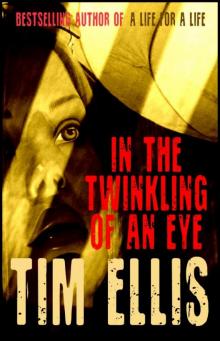 In the Twinkling of an Eye (9781311593672)
In the Twinkling of an Eye (9781311593672)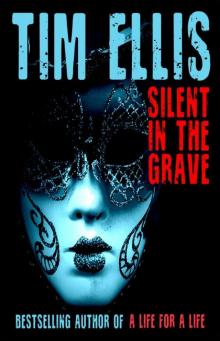 Silent in the Grave (9781311028495)
Silent in the Grave (9781311028495)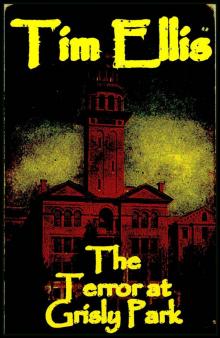 The Terror at Grisly Park (Quigg 5)
The Terror at Grisly Park (Quigg 5) Jacob's Ladder (Stone & Randall 1)
Jacob's Ladder (Stone & Randall 1) Dead Know Not (9781476316253)
Dead Know Not (9781476316253)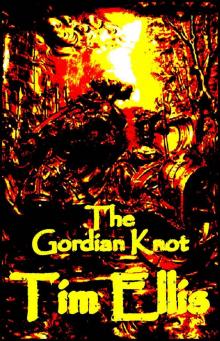 The Gordian Knot (Stone & Randall 2)
The Gordian Knot (Stone & Randall 2) Be Not Afraid (9781301650996)
Be Not Afraid (9781301650996)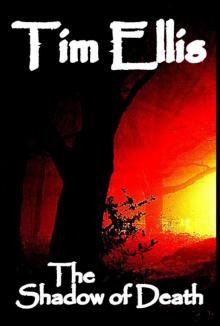 Shadow of Death (9781476057248)
Shadow of Death (9781476057248) Through a Glass Darkly (9781301753000)
Through a Glass Darkly (9781301753000)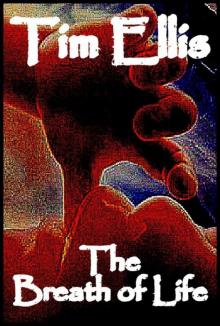 Breath of Life (9781476278742)
Breath of Life (9781476278742)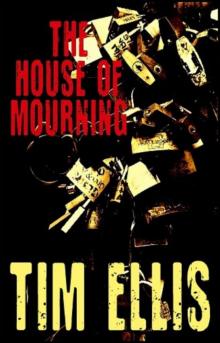 House of Mourning (9781301227112)
House of Mourning (9781301227112)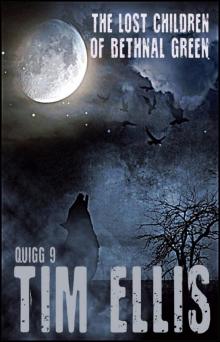 Lost Children of Bethnal Green (Quigg #9)
Lost Children of Bethnal Green (Quigg #9)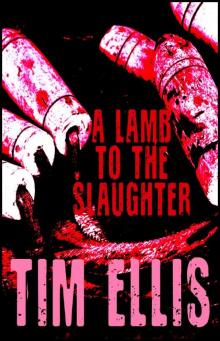 Lamb to the Slaughter (9781301399864)
Lamb to the Slaughter (9781301399864)